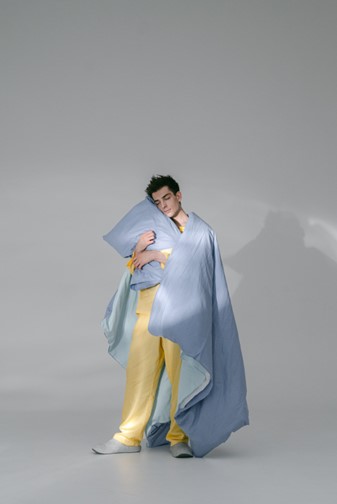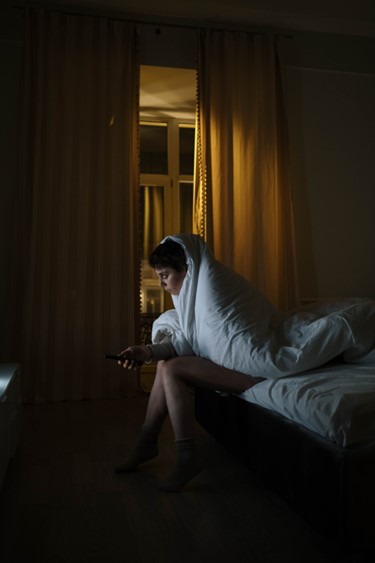In this age of ubiquitous technology, it’s important to understand how the use of electronic devices affects sleep and how you can minimize the negative effects. Here are some tips on how to use technology in a healthy way:
- Limit exposure to blue light: Blue light emitted from the screens of electronic devices can interfere with the production of melatonin, the sleep hormone. Try to limit the use of these devices at least an hour before bedtime.
- Use night mode: Many devices have a “night mode” or “reading mode” function that reduces blue light emissions. Use this function during evening hours.
- Keep devices out of the bedroom: Creating a space free of electronic devices in the bedroom can help create an environment conducive to sleep.
- Be aware of sounds and notifications: Notification sounds from your phone or computer can disturb your sleep. Consider turning off notifications or setting your phone to “do not disturb” mode at night.
- Avoid stressful content before bed: Watching stressful movies, news or using social media before bed can increase stress levels and make it harder to fall asleep.

- Use sleep-enhancing apps: There are apps designed to improve sleep quality, such as meditation apps, nature sounds or sleep monitoring that can help.
- Pay attention to the location of your devices: Keep electronic devices away from your bed to avoid the temptation to use them when you should already be resting.
- Establish a technology-free evening routine: Develop evening habits that don’t require technology, such as reading a book, writing a journal or relaxation exercises.
- Be aware of the impact of technology on children and teens: Children and teens are particularly sensitive to the effects of blue light on sleep. Limit their time in front of a screen during the evening hours.
- Awareness of physiological impact: Understanding that prolonged use of electronic devices can lead to problems such as digital eye fatigue can help you make informed decisions to limit the time you spend in front of a screen.
- Create ‘electronic quiet hours’: Set hours when you don’t use any electronic devices, especially in the evening. This can help you relax and prepare your mind for sleep.
- Use technology to your advantage: In addition to avoiding the negative aspects of technology, you can also use its positive sides. For example, choose an alarm clock with natural sounds to gently wake you up in the morning.
- Control bedroom air quality and temperature: Use smart home devices to monitor and regulate bedroom conditions, such as air purity and temperature, which can contribute to better sleep.

- Take care of ergonomics: If you use technology before bed, pay attention to ergonomics. Improper posture when using devices can lead to body pain that interferes with sleep.
- Limit the amount of time you play before bedtime: Video games can be particularly stimulating and can disrupt sleep, especially if played right before bedtime. Try to avoid playing games at least an hour before your scheduled bedtime.
- Use blue-light blocking glasses: If you must use electronic devices in the evening, consider using special blue-light blocking glasses.
- Limit the use of devices in bed: The bed should be associated with relaxation and sleep, not with work or entertainment. By limiting the use of devices in bed, you can help maintain the bed’s mental association with sleep.
- Awareness of technology’s impact on sleep cycles: Understanding how technology affects your sleep and wake cycles can help you make more informed decisions about its use.
- Use sleep tracking apps: Sleep monitoring apps can provide valuable information about the quality and quantity of your sleep, helping to identify potential problems.
- Regular technology breaks: Introducing regular breaks from technology during the day can help reduce overall exposure to blue light and stimulation, which contributes to better sleep.
By adopting these tips, you can better control the impact of technology on your sleep, and thus improve the quality of your night’s rest.
